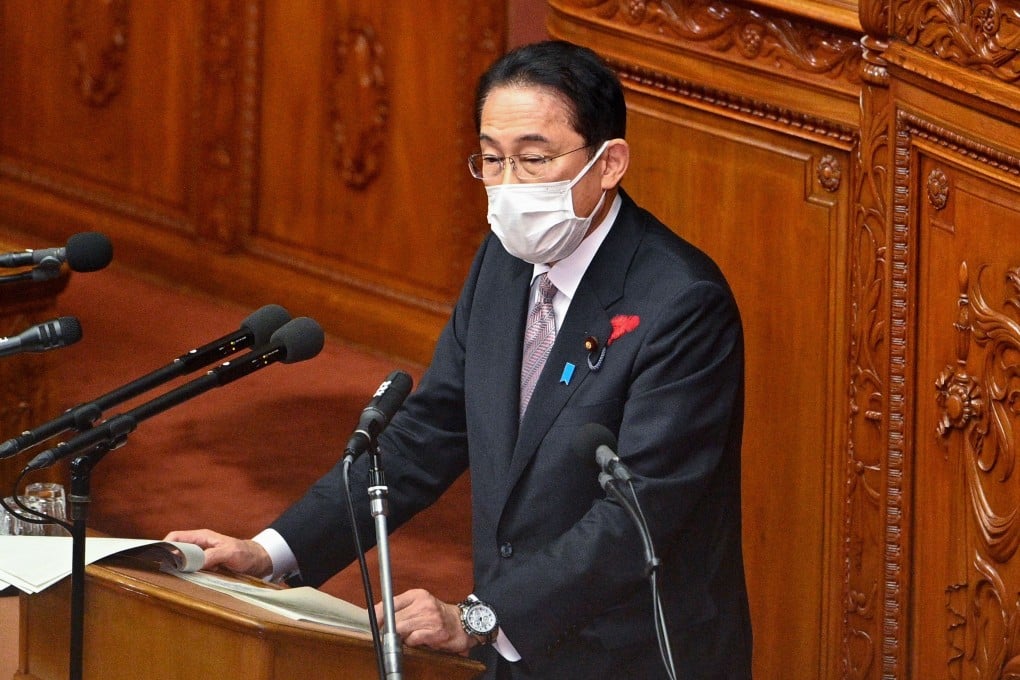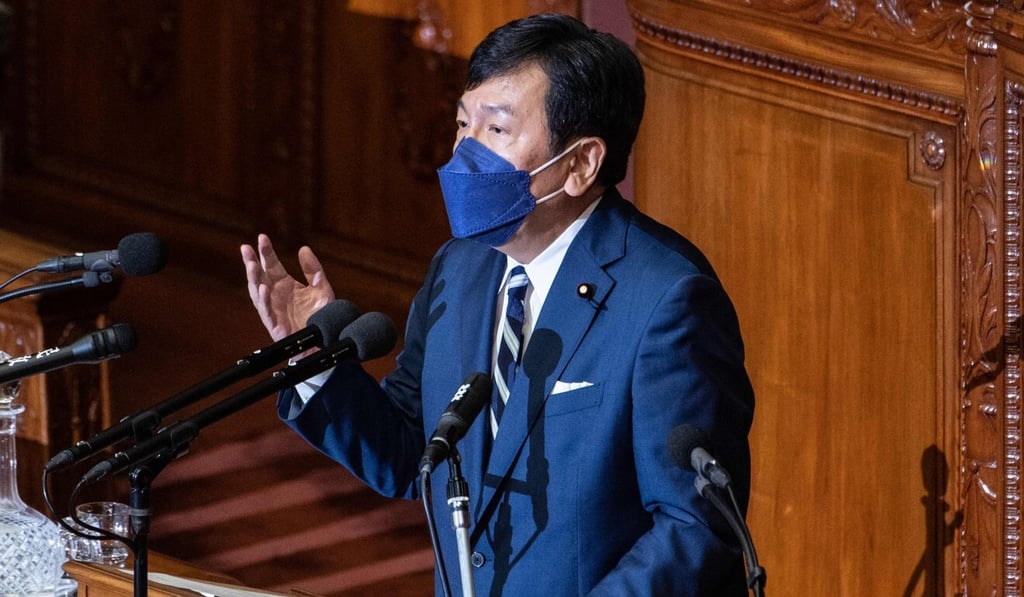Japan’s new PM Fumio Kishida defends pro-nuclear stance in parliamentary debut
- Energy became a key issue during the ruling Liberal Democratic Party’s recent leadership race
- Nuclear energy has been contentious in Japan, especially since a 2011 earthquake off the coast triggered a tsunami that smashed into a Fukushima nuclear power plant

Energy became a key issue during the ruling Liberal Democratic Party’s (LDP) recent leadership race, during which Kishida beat Taro Kono, a former vaccine minister who had spoken out against nuclear energy, to become prime minister.
“It’s crucial that we restart nuclear power plants,” Kishida said as he faced opposition questions in parliament for the first time since becoming prime minister last week.
Kishida was responding to questions from Yukio Edano, leader of the main opposition Constitutional Democratic Party of Japan (CDPJ), on the government’s policy for sustainable energy and if nuclear power would be part of the plan.
All of Japan’s nuclear power plants were shut down after the disaster, which highlighted failings in regulation and oversight. While some reactors have been coming back on stream, most remain shut.

